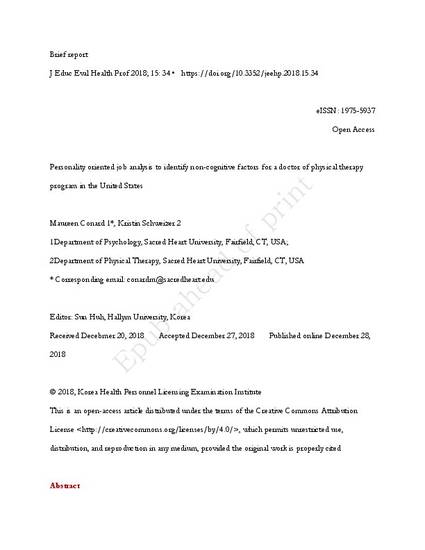
It aimed to conduct a personality oriented job analysis to identify non-cognitive factors that may predict successful performance or performance difficulties in doctorate in physical therapy (DPT) students. The study employed focus groups and a survey with 9 DPT subject matter experts. Focus group participants including 3 DPT faculty members and 4 recent graduates of the DPT program identified 22 non-cognitive factors. Out of them, 15 factors were possibly associated with successful performance and 7 factors were possibly associated with performance difficulties. The questionnaire employing the Combination Job Analysis Method resulted in 12 factors which could be used in selection, and 10 which could be incorporated into training. The present study employed an established job analysis method using subject matter experts to identify a broad array of factors that go beyond what previous studies have examined, and which may predict success or difficulties in a DPT program.
Conard, M. & Schweizer, K. (2018). Personality oriented job analysis to identify non-cognitive factors for a doctor of physical therapy program in the United States. Journal of Educational Evaluation for Health Professions, 15, 34. Published online December 28, 2018. doi: 10.3352/jeehp.2018.15.34

Version posted is E-publication ahead of print. Open access, Creative Commons Attribution License.